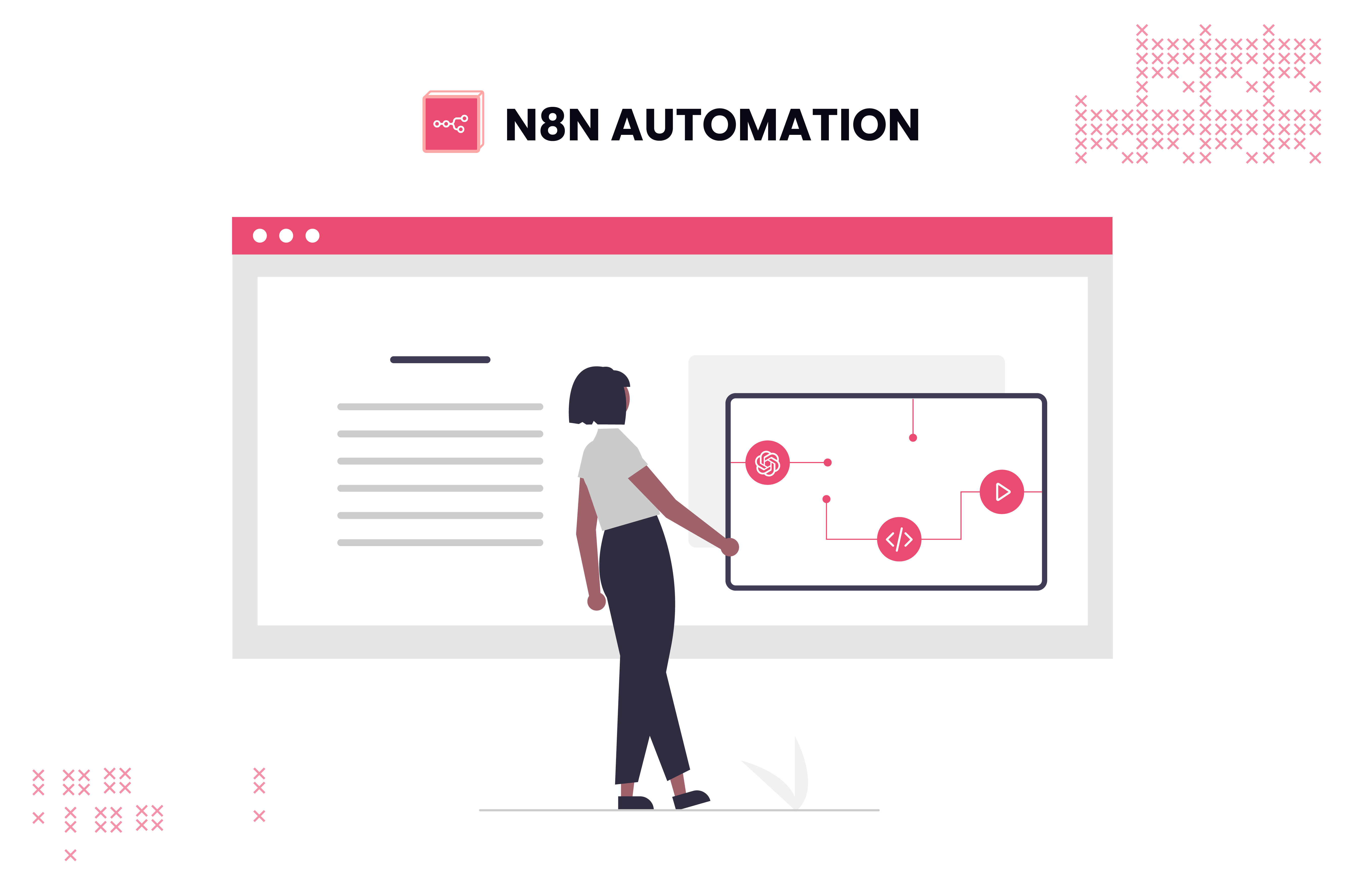
In the world of real estate investment, new technology is making a big impact. Generative AI is transforming how investment companies analyze markets, manage properties, and make decisions. Join us as we explore how this innovative tech is reshaping the future of real estate investment, making operations more efficient, accurate, and full of potential.
Generative AI models are designed to handle large volumes of data swiftly and accurately. In real estate investment, these models can sift through extensive datasets containing property values, rental rates, market trends, and economic indicators. By doing so, they provide detailed insights into the current market conditions and property valuations.
Traditionally, property valuation and market analysis required significant human effort and expertise. However, with Generative AI, this process becomes more efficient and precise. AI algorithms can identify patterns and correlations within the data that human analysts might overlook, thereby offering a more comprehensive understanding of the market dynamics.
For instance, AI can analyze historical sales data alongside current economic factors to predict future property values. This predictive capability enables investment firms to make informed decisions about buying, selling, or holding properties. By leveraging Generative AI for property valuation and market analysis, real estate investment companies can optimize their investment strategies, mitigate risks, and capitalize on emerging opportunities in the market.
Predictive analytics powered by AI represents a transformative tool in real estate investment strategy. By analyzing vast amounts of historical data and current market trends, AI algorithms can generate forecasts of future property values with a high degree of accuracy.
This capability is invaluable for real estate investment companies as it allows them to anticipate market movements and trends. Armed with predictive insights, companies can optimize their investment strategies by identifying promising opportunities for property acquisition or sale. They can also adjust their portfolio holdings in anticipation of changes in property values or market conditions.
Moreover, AI-driven predictive analytics enables investment firms to make data-driven decisions, reducing reliance on intuition or guesswork. This results in more informed and strategic investments, ultimately maximizing returns and minimizing risks.
In essence, predictive analytics powered by AI empowers real estate investment companies to stay ahead of the curve, capitalize on emerging opportunities, and navigate market fluctuations with confidence and precision.
AI-powered systems offer significant advantages in automating routine property management tasks within real estate investment companies. These tasks include:
Rent Collection: AI can streamline the rent collection process by automating reminders, notifications, and payment processing. This ensures timely payments and reduces the administrative burden on property managers.
Maintenance Scheduling: AI algorithms can analyze historical maintenance data, property condition reports, and tenant requests to optimize maintenance scheduling. This proactive approach helps in preventing costly repairs and ensuring tenant satisfaction.
Tenant Communication: AI-powered chatbots or virtual assistants can handle routine tenant inquiries, lease inquiries, and maintenance requests. These systems can provide immediate responses, 24/7, improving tenant satisfaction and operational efficiency.
By automating these tasks, AI frees up human resources from mundane administrative duties. Property managers and staff can redirect their time and energy towards more strategic activities such as portfolio analysis, tenant relationship management, and business development. This shift not only enhances overall productivity but also allows real estate investment companies to deliver better services to tenants and stakeholders, ultimately driving long-term business success.
Generative AI can analyze customer preferences and behaviors to personalize marketing efforts and customer service interactions. This leads to higher client satisfaction and retention rates.
Risk Assessment: AI algorithms can assess investment risks by analyzing factors such as market volatility, economic conditions, and property-specific attributes. This helps in mitigating risks and optimizing investment portfolios.
Virtual Property Tours: Using Generative AI, companies can create virtual reality (VR) or augmented reality (AR) property tours. Potential investors or tenants can explore properties remotely, saving time and resources.
AI-powered Natural Language Processing (NLP) streamlines due diligence in real estate investment by swiftly analyzing legal documents like property transactions, leases, and contracts. It extracts key information, identifies critical clauses, and assesses risks with high accuracy, speeding up processes and reducing errors. This technology enhances efficiency, enables quicker decision-making, and ensures compliance by automating complex document reviews.
AI's capability to analyze building data plays a pivotal role in optimizing energy usage and advancing sustainability initiatives within real estate investment. By processing data from building systems such as HVAC, lighting, and energy meters, AI identifies patterns and inefficiencies that human analysis might overlook.
This analysis allows AI to suggest adjustments to building operations, such as optimizing heating and cooling schedules based on occupancy patterns or recommending upgrades to energy-efficient technologies. These actions not only reduce operational costs by lowering energy consumption but also contribute to environmental goals by decreasing carbon footprints and promoting sustainable practices.
Ultimately, AI empowers real estate investment companies to achieve significant cost savings while demonstrating a commitment to environmental stewardship. This dual impact of reducing expenses and enhancing sustainability makes AI-driven building optimization a cornerstone of modern real estate management strategies.
AI's ability to analyze demographic data and consumer preferences provides real estate investment companies with powerful insights into emerging markets and niche opportunities. By processing vast amounts of data, AI can pinpoint demographic shifts, socio-economic trends, and consumer behaviors that indicate growth potential in specific regions or property types.
This analytical capability enables investment firms to identify lucrative investment opportunities before they become widely recognized. Whether it's identifying neighborhoods undergoing gentrification, predicting demand for specific property types (such as eco-friendly housing or mixed-use developments), or anticipating shifts in consumer preferences (like preferences for urban living versus suburban environments), AI-driven insights empower firms to make informed decisions.
By leveraging AI's predictive analytics, real estate investment companies can strategically allocate resources, mitigate risks, and capitalize on emerging trends, thereby maximizing returns on investments. This proactive approach not only enhances profitability but also positions firms as leaders in identifying and exploiting new market opportunities in the dynamic real estate landscape.
AI algorithms play a crucial role in real estate investment by continuously monitoring and optimizing portfolios based on performance metrics, market conditions, and investor goals. These algorithms analyze vast amounts of data in real-time, including property values, rental income, occupancy rates, market trends, economic indicators, and investor preferences.
By processing this data, AI can identify patterns and correlations that human analysis might miss, enabling it to make data-driven recommendations for portfolio adjustments. This includes decisions on property acquisitions, divestitures, lease renewals, and strategic asset management strategies.
The continuous monitoring and optimization provided by AI ensure that real estate portfolios remain competitive and aligned with strategic objectives. It allows investment firms to respond swiftly to market fluctuations, capitalize on emerging opportunities, and mitigate risks. Ultimately, AI empowers firms to maximize portfolio performance and investor returns by leveraging predictive analytics and maintaining agility in a rapidly evolving market environment.
In this rapidly evolving landscape of real estate investment, firms like Patronecs are at the forefront of leveraging AI to revolutionize their services. Patronecs utilizes advanced AI algorithms to analyze extensive datasets, including property values, market trends, and economic indicators. This robust analysis enables them to provide accurate property valuations and insightful market predictions, empowering their clients to make informed investment decisions.
Moreover, Patronecs integrates AI-powered systems to automate routine property management tasks such as rent collection, maintenance scheduling, and tenant communications. By doing so, they enhance operational efficiency, reduce administrative burdens, and ensure seamless tenant experiences.
Additionally, Patronecs employs AI-driven NLP technologies to expedite due diligence processes by swiftly reviewing and analyzing complex legal documents related to property transactions, leases, and contracts. This capability not only accelerates transaction timelines but also minimizes errors, ensuring compliance and mitigating legal risks.
Furthermore, Patronecs utilizes AI to analyze demographic data and consumer preferences, identifying emerging real estate markets and niche opportunities. This strategic insight allows them to capitalize on new investment prospects and tailor their services to meet evolving client demands effectively.
In essence, by harnessing the power of AI across their operations, Patronecs is setting a new standard in real estate investment services. They are enhancing client satisfaction, optimizing portfolio performance, and driving sustainable growth in a competitive market landscape.

If you're considering workflow automation, you've likely come across n8n — an open source automation tool
Read More%20(1).png)
Learn what a UI/UX designer does, tools used, salaries in Sialkot, and how to switch from graphic design to UI/UX. Guide by Patronecs with workshops.
Read More
Confused between graphic design and UI/UX? This beginner-friendly blog breaks it down simply to help you choose the right path and get started.
Read More